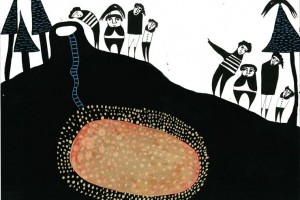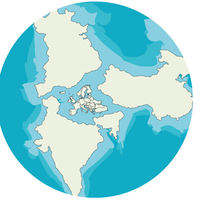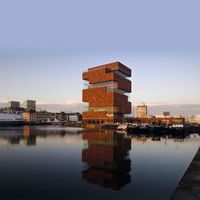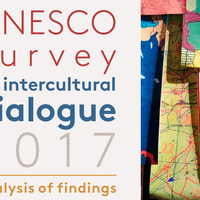Resources: an Intercultural Tool for Museums
 The result of a collaboration between the Department of Cultural Management at the Universiteit Antwerpen (Flanders, Belgium) and the Department of Museum Studies at the Université du Québec a Montréal (Quebec, Canada), an intercultural tool aimed at museums in urban context has recently been published.
Inspired by the Council of Europe's Intercultural Cities programme, collaboration between researchers and students at both universities involved an analysis of four city museums in Quebec, Flanders and the Netherlands and how they approached intercultural dialogue. Among the museums under study was Museum aan de Stroom, Antwerp, an ASEMUS member.
The analytical grid produced in the context of the research project can be used by all types of museums and heritage institutions wishing to reflect upon their engagement with diverse communities. Museums may find it useful for initiating brainstorming sessions and self-assessment exercises, supporting planning processes, conducting intercultural project evaluations or facilitating benchmarking and the exchange of strategic information. Researchers in the heritage and cultural management fields may also find it useful for collecting, analysing and comparing data on issues related to diversity and intercultural dialogue in the museum sector.
The grid addresses three levels of analysis, as explained hereafter:
The result of a collaboration between the Department of Cultural Management at the Universiteit Antwerpen (Flanders, Belgium) and the Department of Museum Studies at the Université du Québec a Montréal (Quebec, Canada), an intercultural tool aimed at museums in urban context has recently been published.
Inspired by the Council of Europe's Intercultural Cities programme, collaboration between researchers and students at both universities involved an analysis of four city museums in Quebec, Flanders and the Netherlands and how they approached intercultural dialogue. Among the museums under study was Museum aan de Stroom, Antwerp, an ASEMUS member.
The analytical grid produced in the context of the research project can be used by all types of museums and heritage institutions wishing to reflect upon their engagement with diverse communities. Museums may find it useful for initiating brainstorming sessions and self-assessment exercises, supporting planning processes, conducting intercultural project evaluations or facilitating benchmarking and the exchange of strategic information. Researchers in the heritage and cultural management fields may also find it useful for collecting, analysing and comparing data on issues related to diversity and intercultural dialogue in the museum sector.
The grid addresses three levels of analysis, as explained hereafter:
- Environmental analysis, including the sociodemographic environment of the city, the policy environment of the museum, the institutional environment of the museum and the governance environment of the museum.
- Museum analysis, including an institutional overview of the museum and an intercultural audit of the museum.
- Project analysis, including an analysis of projects with intercultural components.
Similar content
posted on
08 Jan 2012
18 Nov 2015 - 20 Nov 2015
from - to
22 May 2013 - 23 May 2013
posted on
02 Nov 2014
posted on
03 Jul 2018



